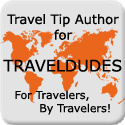Vietnam has only been a unified, independent nation since 1975, but it possesses a culture that goes back thousands of years and attracts many tourists annually. Preparing for a trip to Vietnam is key to making your visit to this interesting country as safe and pleasurable as possible. You can prepare for a trip to Vietnam by considering which time of the year to travel, whether or not to go on an organized tour, making sure you have all of your travel documents ready, obtaining the correct currency for your Vietnam trip, and making sure you have all of your immunizations at least 6 weeks before you leave. Read the following steps to find out how to prepare for a trip to Vietnam.
Choose which time of year you want to travel to Vietnam.
- If you're visiting North Vietnam, plan your trip between November and April to enjoy the spring weather, which is cooler and drier than the rest of the year. In addition, there are many interesting folk festivals and ceremonies during this time.
Plan your travel around Vietnamese festivals and celebrations.Vietnam observes many socialist holidays, as well as Christmas and the Vietnamese Lunar New Year.
- April 30th is Saigon Liberation Day, which is a 1 day holiday, followed by a 1 day holiday on May 1st to celebrate International Labor Day. On September 2nd, a 1 day holiday is observed to celebrate the National Day of the Socialist Republic of Vietnam.
- Around the end of January and the beginning of February, the Vietnamese celebrate the Lunar New Year, which they call "Tet." The exact dates change every year. Though most people go home to spend this 4 day holiday with their families and many businesses are closed during this time, it's an interesting festival to witness.
- South Vietnam enjoys a warm climate all year round, with an average temperature of 80.6 degrees Fahrenheit (27 degrees Celsius).
Decide whether you want to travel alone or as part of a tour.
- An organized group tour can ensure that your flights and accommodation is taken care of, as well as help you avoid common pitfalls, such as overpaying for attractions, getting lost, or even being robbed.
- If you don't want to travel as a part of a group, you're best advised to have a travel agent book your flights and hotel for you but rely on local guides to show you the sights. Most hotels can arrange for state-operated tour guides, who charge around $25 for a day, excluding expenses, to give you day tours. They generally can speak English, French, Chinese, Russian or Japanese.
Obtain your passport and tourist visa.
- If you don't already have a passport, apply for one at your local post office.
- You do not need a tourist visa if you're Vietnamese and holding a foreign passport. You and your foreign spouse or child are exempt if you stay under 90 days. You'll need to show your foreign permanent residency permit and obtain a visa exemption from the appropriate Vietnamese authorities.
- Visitors from Malaysia, Thailand, Singapore, Laos and Indonesia with current passports can stay for 30 days in Vietnam without a visa, while those from the Philippines can stay for 21 days.
- People with diplomatic passports from over 60 different countries, as well as ASEAN officials, do not need a tourist visa to enter Vietnam.
- Tourists from Norway, Finland, Sweden, and Denmark may stay for 15 days.
- All others need visa, 30 days, issued in consulates or diplomatic offices. You can apply for a tourist visa at the Vietnamese embassy or consulate in your country. Be sure to do this well ahead of time, as the process may take over a month.
Visit your doctor for immunizations and other medical precautions.
- If you're entering from a country with a risk of yellow fever virus, you'll need proof of yellow fever immunization to enter Vietnam.
- Ask your doctor which immunizations are currently required or recommended for Vietnam, as this may change from time to time.
- Ask about other medications, such as anti-malaria and anti-diarrhea drugs.
Get the correct currency for your Vietnam trip. In Vietnam, you can use U.S. dollars in many large hotels and tourist hotspots, but you'll need the country's official currency, the Vietnamese dong, in smaller places and at markets. You can exchange money at the airport and at banks, hotels and jewelry shops. Most hotels and businesses don't accept travelers' checks.
Be aware of the country's entry and exit procedures at customs.You'll need to fill in declaration forms when you enter and leave the country.
- Goods you bring into the country for personal use are tax-exempt.
- You may bring unlimited amounts of gold, silver, and other precious metal objects, as well as foreign currency, so long as you provide a detailed description on your customs form.
- You can take as many souvenirs with you as you like, so long as you can provide the receipts to the customs officers if they ask to see them upon leaving the country.
Buy a guidebook that has a few helpful phrases in Vietnamese. Even a few polite words can get you a long way when traveling.
Purchase a money belt that you can wear under your clothes. This is a safe and comfortable way of storing money and your travel documents on your person without tempting pickpockets.

















